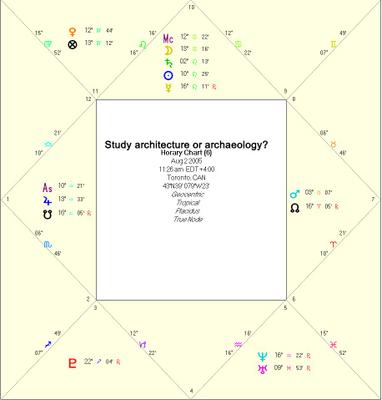Weekly Horary: Should I Hire J As Personal Assistant?

CLICK ON THE IMAGE TWICE TO SEE A LARGER VERSION
Email your horary questions to nina “at” gryphonastrology.info by Friday to be published on Sunday.
Question: “Should I hire J. as my personal assistant?”
Background: The Querent owns a small business and is looking for a personal assistant to help her organize her busy schedule. She has been looking at a number of candidates, and has found one that seems appropriate. However, the Querent had some reservations about the candidate’s skills and experience as a personal assistant.
Short Answer: No. While J. is a decent person who could do the job adequately, it looks as though there will be some impediment to her using those skills. Perhaps the Querent’s job requirements will impede J. somewhat. More importantly, the Querent does not seem to like J. very much, or at least harm her in some way. This may not be personal, just that the Querent feels J is unsuited to the job. Instead, Querent seems to very strongly prefer another candidate, though that individual may be a rather worse choice than J. Nonetheless, we can determine J will not be hired.
Astrology:
- J, as the Querent’s potential employee, is shown by the 6th house and its ruler, Jupiter. Jupiter is in its term, so it has some essential dignity, indicating that J has some skills and is essentially a decent person. However, Jupiter is about to conjunct the malefic South Node, indicating that while J would be an okay employee, she will be prevented from using those skills. Perhaps something will happen to her, or more likely, the Querent herself would somehow prevent J from doing her job.
- Querent does not seem to like J very much, which would be one reason not to hire J as a personal assistant. This is shown by Venus in Jupiter’s detriment. However, both the Moon and Venus are in strong dignities of Mercury, indicating that the Querent much prefers another candidate. Unfortunately, Mercury is not known for its sense of honesty or integrity, and here Mercury is debilitated by being retrograde, peregrine and combust. Querent would do better in hiring J than this other individual.
- There will be no progress in the situation, as shown by the Moon being Void of Course (not making any aspects in its current sign). Nothing will happen, so unless we see aspects between Lord 1 or the Moon and Lord 6, we can assume J will not be hired. There is no applying aspect between Jupiter and Venus/Moon, so J will not be hired by the Querent.




